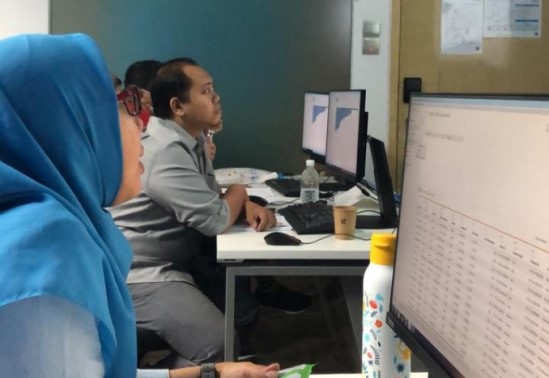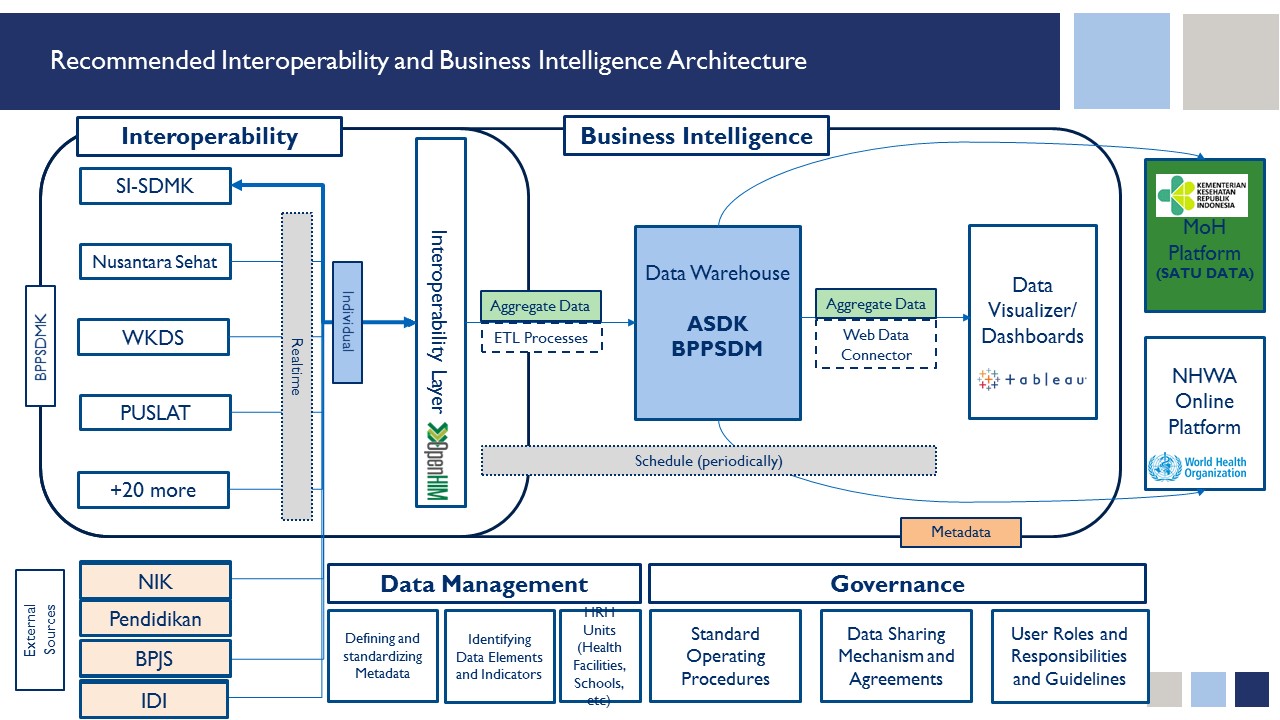
18 Nov Enhancing Strategic Use of Human Resources for Health Workforce Data in Indonesia
Complete, accurate, and current data on the number, distribution, and budget allocation of the health workforce are key to a high-performing health system. In Indonesia, where more than 10 government agencies collect data on health workers, HRH2030 is supporting the Ministry of Health and its partnering agencies and stakeholders to enhance its human resources for health (HRH) information systems for improved HRH planning, management, and optimization.
HRH2030 has been providing technical assistance to Indonesia’s Ministry of Health Board of Human Resources for Health Empowerment and Development (Badan Pengembangan Dan Pemberdayaan Sumber Daya Manusia Kesehatan, or BPPSDMK) to develop a business intelligence platform with comprehensive data analytics dashboards, which will integrate information streams from many disparate systems into this one platform. This comes in tandem with support to the BPPSDMK’s Central Information Unit to enhance the country’s main human resources information system, SI-SDMK, through the development of an interoperability architecture to allow for the exchange of data with other information systems from key HRH partners (see graphic below).
Through mentorship, coaching, and training, HRH2030 is providing capacity development to team members from the Central Information Unit and Center for Planning within BPPSDMK, to build their capacity as developers and managers of Indonesia’s human resource information system. In September 2019, five team members from the BPPSDMK, attended a training on Tableau, a data analysis tool that facilitates the creation of visually dynamic, data-rich dashboards. This training was a follow-up to a workshop held earlier this year, where they learned the basics of data visualization and dashboard development. The knowledge gained from this latest training built upon the earlier workshop, enabling participants to gain a deeper understanding of the application’s functions as well as some hands-on practical learning.
The Ministry of Health’s investment in upgrading its health information systems signals its commitment to making evidence-based decisions as the country moves forward to achieve its health goals.
The increased functionality of the SI-SDMK will enable the Ministry of Health to develop National Health Workforce Accounts (NHWA) for Indonesia. NHWA, adapted as part of the World Health Organization’s Global Strategy on Human Resources for Health: Workforce 2030, enable countries to monitor a set of indicators that link data on the health workforce to global health objectives including Universal Health Coverage and the Sustainable Development Goals.
“The National Health Workforce Account is a basic tool to strengthen HRH data to feed cost effective decision making,” said BPPSDMK Secretary Dr. Trisa Wahjuni Putri, M. Kes, during the second convening of the Indonesia’s NHWA technical working group in September. “The SI-SDMK will summarize HRH information from students’ prior to their entry into a health school until graduation, and then continue with their continuing professional development education and training. This improvement in data collection will also be the basis for more cost-effective policies.”
All systems related to human resources for health should be combined under SI-SDMK, noted Dr. Didik Budijanto, head of the Center for Data and Information (PUSDATIN), during the same convening.
This current work builds on collaboration between Indonesia’s MOH and HRH2030 begun in 2017, when HRH2030 conducted a joint mission with the WHO to provide technical assistance on the implementation of NHWA, including initiation of coordination towards application of the HRIS Assessment Framework (HAF). More on this can be found in the technical report, HRIS Status Review in Indonesia: Results and Recommendations.
___
Photo: BPPSDMK team members review health workforce data during a Tableau training in September. Credit: HRH2030






